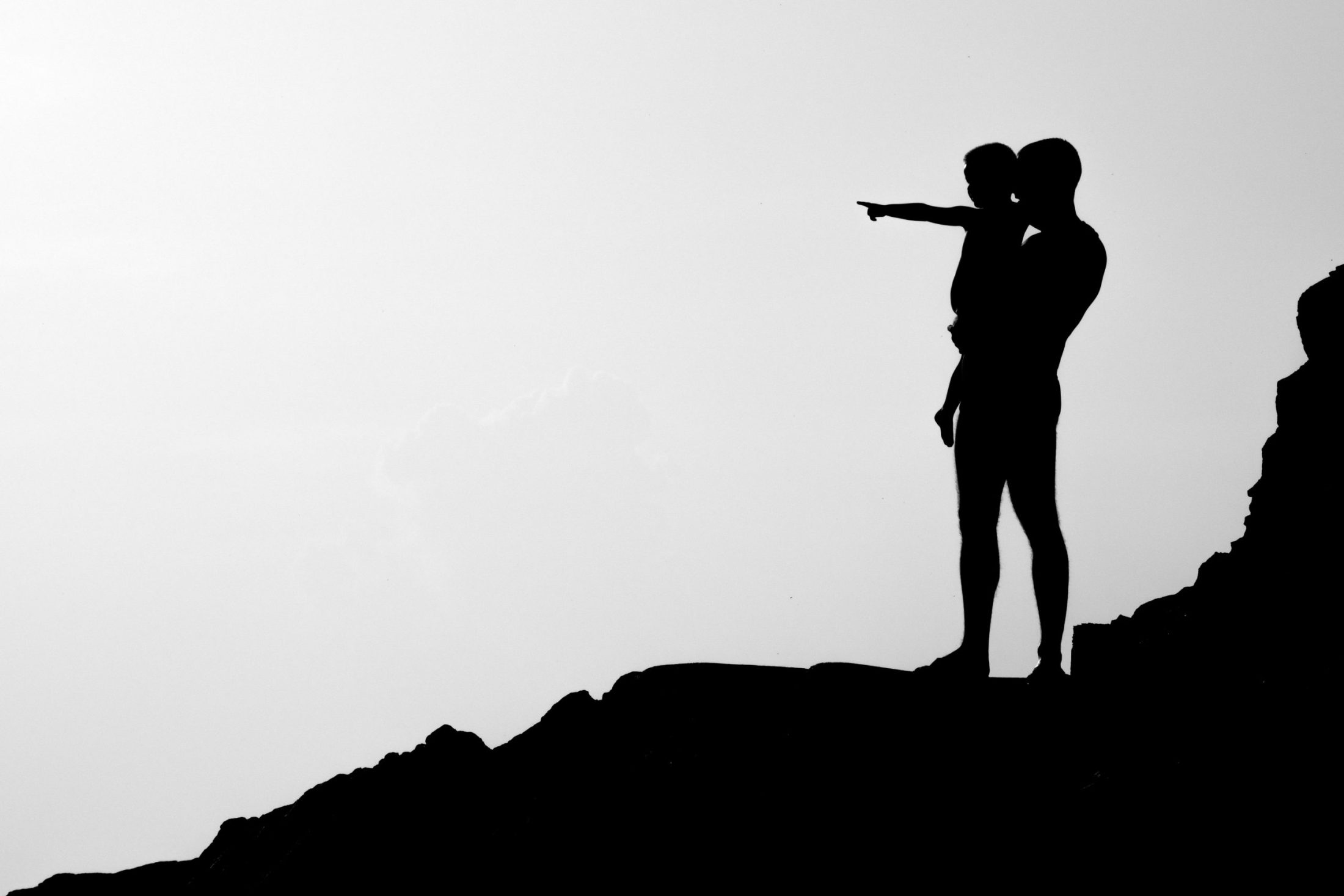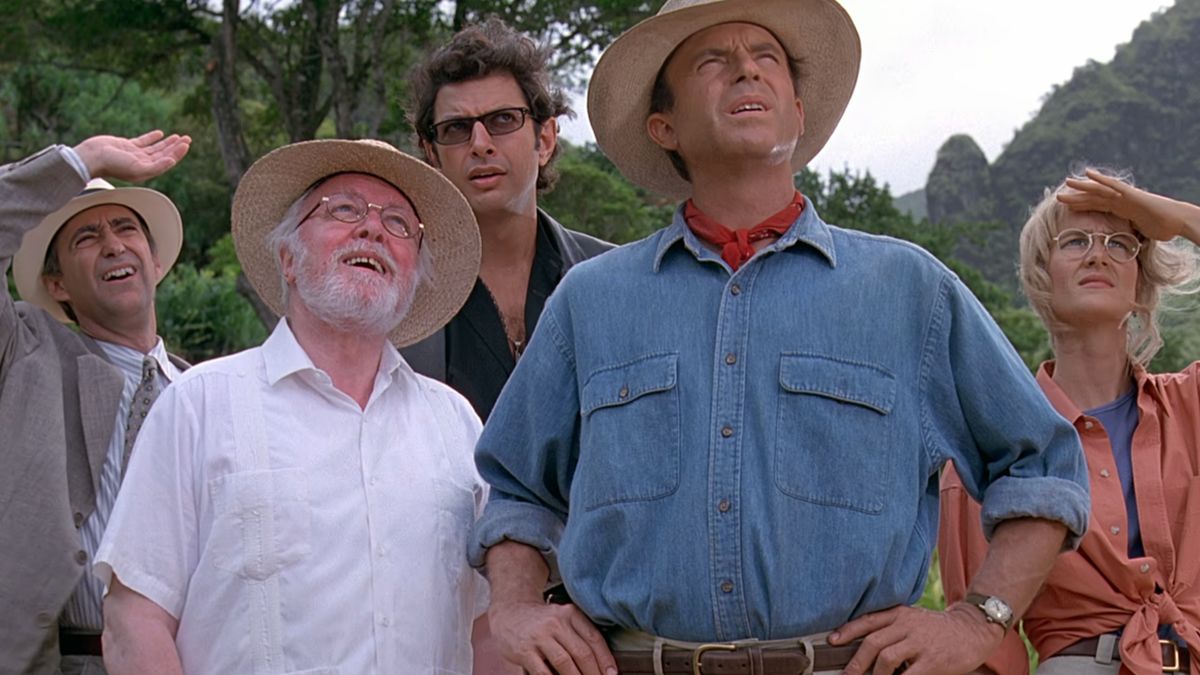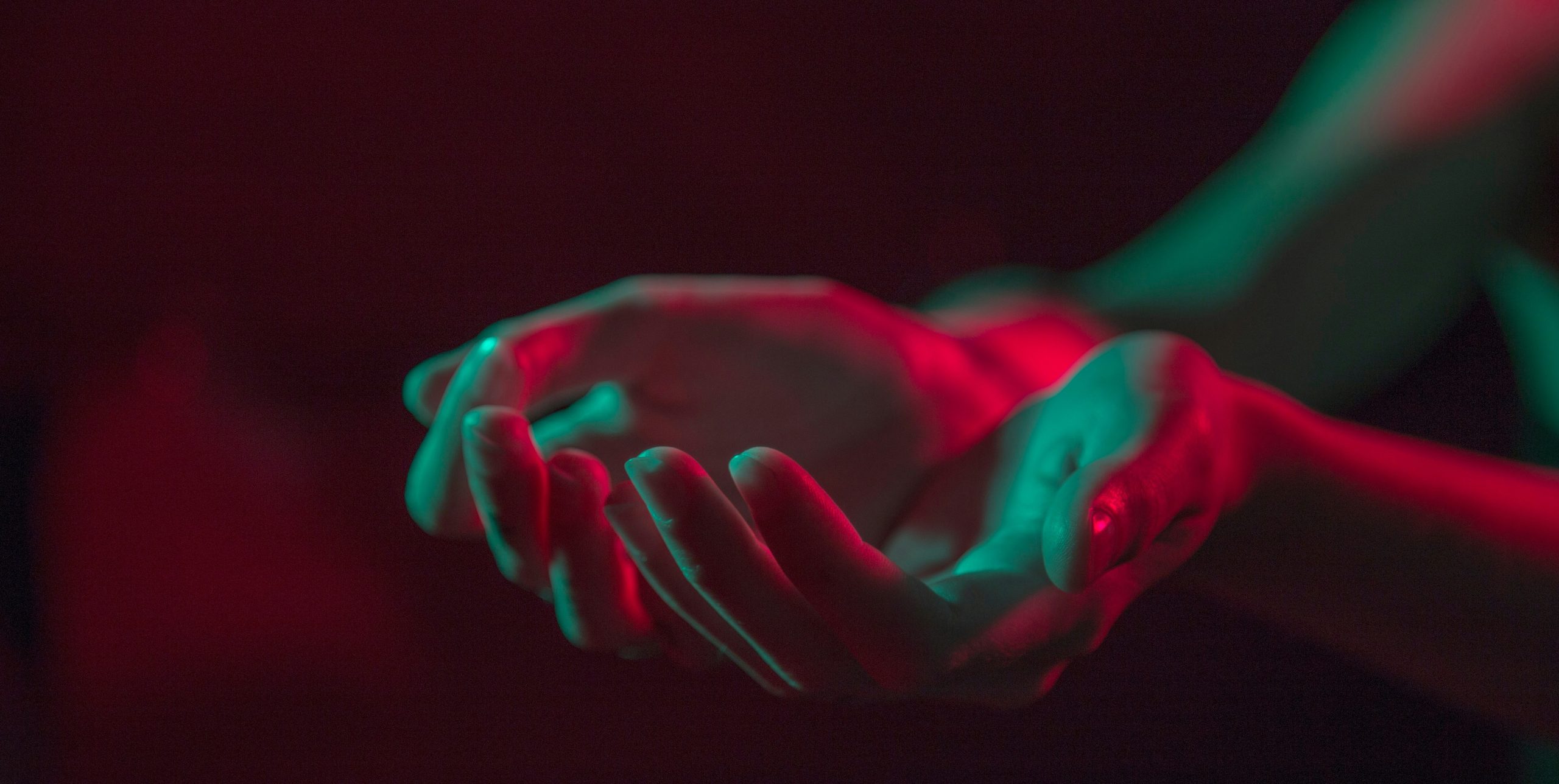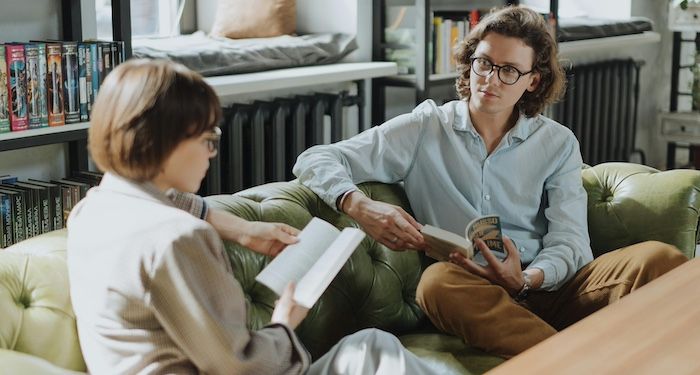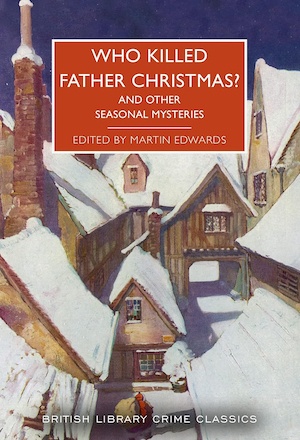“How to Build a Father” by Danny Goodman
Things I use to reconstruct my father:
- Merit cigarettes, brown-yellow pack
- Red Datsun 310 GX, driving around Danbury, Toto IV on the radio
- Mustache, naturally perfect, in the style of Don Mattingly
- New York Jets Garan, Inc. t-shirt, circa 1988
- Butterscotch Krimpets, Tastykake
I could add to the list—his wide, scoundrel smile; the mix of patchouli, tobacco, and Brut on his skin—but it would go on forever. For now, these are the things I remember most about my father. It has been thirty years. This is how I keep him alive. I wonder if I will ever forget.
My best friend’s second child, M, is nearly two years old when I first meet him. Born during the COVID-19 pandemic, M makes a habit of stealing his father’s phone and pressing it too close to his face as we chatter back and forth, his gibberish no less real than anything I say in return. I met his older brother, FC, as a baby and again a few more times over the years. Uncky Dinny, he calls me, his voice high and lilting. As I sit in the living room of their West Coast home, I am immediately overcome by how precious these boys are. They’re a wonderful combination of their parents, two of my closest friends: Jack, who I met early in college and have loved every day since; and Ashley, who found me nervous and elated that first day of graduate school and helped me survive those wild years. The punch of their laughs fills the house. Later, the boys will be screaming, as children do, but for now they are light and bouncing and their energy is enough to power a city.
I’ve traveled here to see these boys but also to celebrate Jack, whose birthday is this week. A few months apart in age, we both wear gray in our temples and beards, constant reminders of time that has passed. Throughout the week of my visit, we talk about getting old(er). We reminisce about the wonderful horrible decisions we made in our twenties. We feel grateful to have survived, to be alive, we both say.
Late one night, stretched out across from Jack on the couch and sipping peppermint tea instead of bourbon, it strikes me that, with this birthday, Jack will be three years older than my father was when he died. I tick through the math in my mind. The boys are about the age my siblings were. My stomach drops at the thought. I can’t escape the intensity of the realization, the ease with which it carves through me. I tear up, explaining to Jack. We’ve cried together countless times before, a closeness of more than two decades shaped into something like soulmates, but this time feels different, in a way I don’t understand then. Slowly, though, I’m beginning to.
My father is tall, and so much taller in my mind. Thin, athletic. When he runs—his denim shorts cut off mid-thigh, striped socks pulled up to his calves—he’s all legs. I want to be just like him. I’ve always been short, and I wonder now what we would look like standing next to each other. Sometimes when I trim my beard, I leave my mustache long for a few moments, just to see. Sometimes I catch fragments of his smile in my own. There’s no sort of photograph to capture this, so I close my eyes and take a breath and hope it’s enough to leave an imprint.
The honeyed mint of my tea fills the living room, and Jack pours himself a bourbon after all, something to soothe what we’ve scratched open.
With this birthday, Jack will be three years older than my father was when he died.
Are you afraid? Jack asks. I mean, is that why you’re afraid to have kids?
I don’t want kids, I say, or repeat, since over the years, Jack has heard me say those words again and again—in college, before and after my first marriage, in both the dark and happy years that followed, and still after FC was born and I held him, my best friend’s child, in my arms, his little fingers wrapped around mine. I have the cats, I say, half-joking, and sip my tea.
Jack doesn’t accept this as an answer.
I don’t know, I say. I mean, of course I’m afraid.
He nods, and I think he understands more than I do. Of what, he asks. Do you know?
I wouldn’t know where to start, I say, as if in my mind the list is so long as to be insurmountable. And maybe that’s true, maybe that’s part of it, but in reality, I don’t know where to start. I have no fucking idea.
On October 22, 2020, I officially outlive my father. Fifty-one days later, I will turn forty, a milestone he never reached. Years ago, despite how morbid it felt, I’d figured out the exact day. It’s not a competition; I simply don’t want to die. Not at all, not ever, but somehow and absolutely specifically not before he did.
I mark the occasion by driving to a nearby grocery store and buying a box of Butterscotch Krimpets. I eat a two-pack in the parking lot and empty what I’ve been holding in all day. The artificial sweetness flushes my skin.
When my younger brother, Andrew, tells us they’re having a baby, I’m immediately overwhelmed with joy. For them, for our family, for our mother who finally gets to be a bubbe. I can’t imagine them as a father, but that will soon change. When the time comes, when their partner’s labor turns from hours to days, they’re by her side; when my nephew arrives—little CK—my brother sends us photo after photo, and in each, though I’d not expected to, I see our father reflected in them.
Finally, I say to anyone who will listen, finally I’m an uncle. My lifelong dream!
I’ve wanted to be an uncle for as long as I can remember, to carry on the tradition of my uncles—my father’s brothers, who were a constant support in my life both before and after my father was gone.
Uncle Danny.
Almost immediately, people ask if I wish it was me having a child. I can see their skepticism in my response, though I’m certain of my feelings. I’m happy to be an uncle. Just an uncle, someone repeats—editorializes—and I correct them. Not just. I’m happy.
But, in truth, I am jealous, in a way I’m embarrassed to admit. Maybe jealous is the wrong word. Sad? I don’t know. Maybe embarrassed is the wrong word, too. Terrified, perhaps. It’s the photos I can’t shake. His face, my father’s. My baby brother and their newborn and our father. They are together somehow, in a way I can’t grasp. For that—that connection across time and space and universes, without me—I am bereft.
When my younger brother, Andrew, tells us they’re having a baby, I’m immediately overwhelmed with joy.
People tell me I can’t control life or what happens. You never know, they say, and they mean well. Life, it’s true, is unexpected. But if I don’t have a child, if I keep that door closed, I can, at least, control that. I can control not bearing that responsibility. Not losing myself in fatherhood. Not leaving my child fatherless. Not everything that comes after, the way it threatens to erase all that came before. I can control at least that.
Andrew is five when our father dies; our sister, Denise, 18 months. Alongside our uncle (our father’s older brother), I tell my brother what has happened as they play in the den, a mix of sadness and an inability to understand washing over their face. They cry, and we take turns holding them. They ask questions, trying to make sense of things. I respond the best I can, and I know—even as a child myself—I can’t break down. I need to be strong, whatever that means. But I pretend I know.
Looking back, that moment feels like the last of my childhood. The last before I become a kind of makeshift, practicable parent. The early mornings and late nights. Diapers and crying and tantrums, lullabies and sharing my bed after nightmares. Within a few years, through high school, I’m working nearly full-time. I choose a college in Orlando, close to home. I bring my siblings—the kids, I call them—up on weekends. We visit Disney World and Universal Studios, pretending to be a British family on vacation; we eat dinners at theme parks and hibachi restaurants. I want to be a bastion of fun for them, their big brother as opposed to their father, but the lines frequently blur. I accompany my sister to her elementary school father-daughter dances. I teach them both how to drive. When I move away after college, I miss them constantly. I fly them up north; we gallivant around New York City. I visit them in South Florida often, despite my desire to escape the memories of a life there. I am not what they deserve, but I try my best.
They are adults now, the kids. I don’t feel responsible for them in the same ways anymore. I remind myself I’m not their father, and I love being their brother.
Yet, every now and then, when I think about fatherhood, I find myself back in that room. Eleven years old, my little brother in tears. Daddy died, I say. They don’t understand. Neither do I.
In the morning, Z wakes me at sunrise. She presses her face to my beard, the sound of her purrs a vibrating song filling the room. I scratch beneath her chin, and she collapses against my chest. Eventually, after demanding many pets, she drifts. Her little body rising and falling as I breathe, though I otherwise try not to move.
I know it’s not the same. I know. But most days it doesn’t matter. It’s more than enough, that love.
At his apartment in Brooklyn, Gregory, one of my closest friends, tells me about his stepson. He’s three years old, and squeezably adorable. A little monster, too.
One minute he’s yelling he hates me, Gregory says, and then we’re walking to school and he’s on my shoulders and he kisses my head and when he runs away from me to go inside he looks back and, dammit, I’m a mess!
He’s happy, I can tell, if exhausted. He loves his stepkids like they’re his own, even as they run him ragged. I’ve never seen him happier, though, and I know those kids are a big part of the reason why. I don’t know if he always wanted children, or if circumstances simply presented him with a life like this and he grabbed hold, held it tight. I wonder, as we share Chinese food in the kitchen, the floor peppered with toys and drawings, crayons loose on the tabletop, if I would’ve made the same choice.
Gregory was raised by a single mother, a fact we bonded over early in our friendship. It changes your perception of the world, especially during your teenage years. I know I viewed women differently than my male counterparts in high school, in ways that make me grateful, fortunate even, twisted as that may sound. But I know Gregory understands; we’ve shared the sentiment with each other more than once. I don’t know how that upbringing affects him as a father, but I’m certain it does. Because I know him and love him, and I see the joy he brings his family, it makes sense to me that he’s an amazing father. That he pours the whole of himself into it. I worry sometimes he gets lost in it, but he embraces it, lovingly and long-headed. And as we sit together at this table, the sugared saltiness of our meal filling the air, I’m certain of something else: that I would be lost, ever so lost, were I in it, too.
In my fiction, fathers are missing or dead, mostly dead. They die tragically, shockingly—one is attacked by a shark and killed right in front of his teenage son—leaving grief and trauma in their wake.
He loves his stepkids like they’re his own, even as they run him ragged.
I rarely, though, write about my father in nonfiction. His death is not spectacular; rather, it is slow and painful, cancer consuming his insides. I can’t imagine what it was like for him, wasting away, watching himself turn to skin and bone, a transformation that takes barely a year and ends a month shy of his fortieth birthday.
When I reconstruct my father, I ignore this version of him. It’s a luxury, having this distance. A box constructed long ago where this version of him can hide away. At peace, at rest.
Though nothing is truly hidden, I know. Not anymore. Because when I see these wonderful men in my life, so in love with their children, the box shakes, ready to burst. Ready to release what I’ve worked so hard to keep out of sight.
When I think about having a child of my own, the box tips over. All at once, I remember what it feels like to watch my father wither, to both understand and not. To know I am losing him. To hold his hand in hospice (a word I also didn’t understand), his fingers like icicles. To hear him say my name—Dan, he calls me, a name now only used by my brother—his voice barely able to catch.
I remember these things and more, but something else, something new, happens. When the box is open, and all of this is loose, suddenly I am him. I am my father, watching my son’s heart break. Wanting to live not for myself but for him, for them, and knowing I won’t. There is almost nothing left of me, and I know soon I’ll be gone. But the way he’s looking at me, I want to live forever, if only to end his pain. To keep him from knowing the grief I knew as a child, a grief he will soon carry with him, scars that will never heal.
This heartbreak, I understand as the child. And though I’ve long felt I’ve been some version of a father to my siblings, I’m not a father. These realities collide in me when I consider having a child. Being both a son and a father. I look at these men in my life, and I’m scared for them. It’s my baggage, not theirs, but I’m terrified nonetheless. I understand what I want to say to Jack, to answer his question. What I’m afraid of. I’ve long found it impossible to find the words. But suddenly, the box is open, and I am my father, or I fear I’m him, and what’s open cannot be closed.
I can’t be a father who leaves behind a child. I can’t be a son left behind. Around me, and through me, I’m beginning to understand fatherhood, and what it means, and how frightened of it I truly am. The box is open, and all of this is loose.
Andrew and their partner send us daily photos and videos of CK. These images are a happy place for me, each one filling me in a way I hadn’t thought possible. CK’s eyes, full and blue, are tidal waves of perfect.
In a recent video, CK jabbers as if in full conversation. My brother talks back, tickling his belly. They’re beaming. Dada, they’re certain he says, or something like it. I hear it, regardless, intangible as it feels.
I’m beginning to understand fatherhood, and what it means, and how frightened of it I truly am.
Over the years, the ways I reconstruct my father have changed. I’m reminded of him on so many occasions—even these decades later—and it surprises me sometimes. The smell of cigarettes, lingering on fabric. A Mets game on the radio. Cinnamon buns on an autumn Sunday morning. The sterile hollowness of hospital corridors. The taste of colonoscopy prep. Signs for Danbury, next exit. Turning forty. My closest friends becoming fathers. My little brother, bearded cheeks curved in a smile, eyes beaming at their firstborn son.
These reminders, they are gifts. The imprint, the echoes, of fatherhood. The depth of that love, that loss, across time and space and universes.

